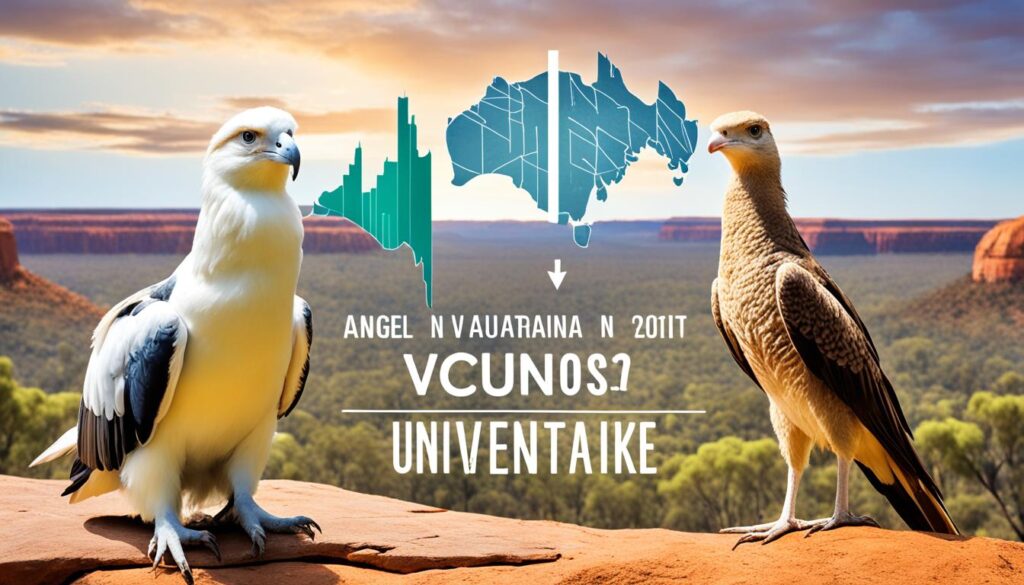Over the last ten years, venture capital investment has seen a huge boost worldwide. This growth is also seen in Australia.1 Australia has about 130 active venture capital firms. These firms have invested nearly $30 billion since the Venture Capital Act began in 2002.1 In 2021, the Australian VC industry peaked, managing over $2 billion.1 Since then, both locally and globally, the funding size has decreased.1 Currently, there are still about 130 venture capital investors in Australia.1
Key Takeaways
- Australia has around 130 active venture capital firms, which have committed around $30 billion of capital since 2002.
- The local VC industry reached a high point in 2021, raising and deploying over $2 billion.
- The Australian VC market has reduced in size since 2021, similar to global trends.
- Venture capital is a key source of funding for startups and emerging businesses in Australia.
- Understanding the VC landscape is crucial for entrepreneurs seeking funding.
Venture Capital Investment Landscape in Australia
Australia’s venture capital scene has grown a lot in the past ten years. It all started in the 1980s with government backing. They created programs to urge people to invest in new and cool businesses.2 The year 2002 saw the birth of the Venture Capital Act. This, along with the setup of Venture Capital Limited Partnerships, fueled even more growth.3 Not until 2015 did the industry really take off, hitting a major milestone in VC fundraising.2 Startups and new companies in Australia greatly benefit from venture capital. It gives them the push they need to quickly expand.4
Growth of Venture Capital Industry in Australia
Over the years, Australia’s venture capital scene has boomed. The private equity and venture capital industry raised an impressive $30.3 billion. This was accomplished by the end of 2020.2 Just in the first quarter of 2021, they poured over $200 million into new ventures. Plus, they gave back over $400 million to their investors.2 In a 20-year span, VC in Australia and New Zealand totaled an investment of $25.8 billion.2 By the first quarter of 2021, Australian PE/VC had about $11.8 billion tied up in investments yet to show their full value.2
Role of Venture Capital in Startup Ecosystem
Venture capital (VC) is a huge help for Australian startups and small companies. It assures that they have the funds they need to grow fast.4 The VC market in Australia is strong, with around €969.0 million available for new ventures.4 VC firms are vital supporters of startup growth. They invest in promising companies in areas like SaaS, Fintech, AI, and Healthcare.4
How many VC firms are there in Australia?
The Australian Investment Council says Australia’s PE/VC industry collected $30.3 billion in capital. Foreign investors chipped in about half of this.1 Presently, Australia has around 130 VC investors. These include Early Stage VCLPs, focusing on early rounds, and VCLPs, which support startups at all stages.1
Active Venture Capital Firms in Australia
Australia’s leading VC firms like Square Peg, Airtree, Blackbird, Telstra Ventures, and Brandon Capital are actively investing.1
Types of VC Firms: ESVCLPs and VCLPs
First up, Early Stage VCLPs need to have $10 million to $200 million in committed funds. They can only invest in businesses worth up to $50 million.1 VCLPs, on the other hand, require a minimum of $10 million in capital. They are allowed to support companies with assets under $250 million.1
Understanding Venture Capital Investment
Venture capital firms put money into young businesses. They get a share of these companies in return.1 The process of investing has three parts: First, the firm checks the business’ plan and team. Then, they talk about how the investment will work. Finally, they decide to put money in.1
Venture Capital Investment Process
Investing in new businesses follows a clear path for VC firms. They aim to find and support startups with big potential. This approach helps them pick businesses that can make a lot of money, which is what they hope for.1
Stages of Venture Capital Funding
VC funding starts with small amounts early on. As businesses grow, they need more money, which leads to bigger funding rounds like Series A, B, C and D.1 VC firms hold a good part but not the majority of the business. Their goal is to make the business worth more before they sell their share.
This way of investing helps VC firms find the best startups. It allows the firms to choose which businesses they think can grow a lot. Understanding how VC funding works can help entrepreneurs get the support they need to grow their business.
Venture Capital vs Private Equity
Private equity and venture capital often get mixed up. But they do very different things.5 Private equity focuses on companies that aren’t public and are more established. They might buy these companies. Venture capital, on the other hand, invests in brand new or small companies. It gets money from private investors.2 These investors own a small part of the company. They help these new businesses grow quickly so everyone can make more money when they sell their part of the company.
Differences in Investment Approach
5 So far, the Australian private equity and venture capital world has gathered $30.3 billion. Most of this money has gone into older, private companies. Only a small slice, just 7%, has been used for the new and small companies.2 In the past 20 years, around $25.6 billion has been put into companies in Australia and New Zealand. This money has come back as profit, $29.2 billion net. Most of these profits, or 95%, came from the older, buyout type of investments.
5 Australian private equity and venture capital have done better than big stock market indexes over long periods. They’ve beat these benchmarks by small but significant percentages over 5, 10, and 20 years up to December 2020.2 The top funds in Australia did even better. They made more than 18% profit each year on average.
5 Compared to Asia, Australia has done well in this investment area. But it hasn’t always been ahead of the game against the US and Europe. One big reason is that Australia doesn’t invest as much in IT companies. The US, in particular, has made a lot of money from investing in IT.
2 Lately, the Australian market in private equity and venture capital has done very well. In the year leading up to March 2021, it grew by 39.4%. Sectors like Consumer, Healthcare, IT, and Industrials did especially well.5 In 2020, Australian investments grew by 21.3%. This was better than the general stock market, which grew by less. During the year up to March 2021, IT, Consumer Staples, and Healthcare were the biggest winners.
2 Even with COVID-19, the private equity and venture capital in Australia have shone. IT and Healthcare have been strong performers.
Venture Capital vs Angel Investment
Both venture capitalists (VCs) and angel investors support startups. Yet, they differ in some key ways.6 Angels are often wealthy people who fund their own investments. They pick businesses they like. VCs, on the other hand, are firms with investors’ pooled money.6 Angels usually help out at the start, while VCs can join in later phases of growth.6 Also, VCs might focus on certain industries, but angels have a wider scope.
| Venture Capital | Angel Investment |
|---|---|
| VCs put in bigger cash amounts than angels, sometimes investing millions.6 They also get more ownership in the companies.6 Working with funds from many others, VCs are serious about their management. They like to be hands-on and could even steer companies by taking a board role.6 | Angels provide between $50k – $250k for businesses in the early stages.6 They’re usually individuals, often with successful business backgrounds, putting their own wealth to work.6 Angels may not directly run the show in the companies they back, but they offer help with valuable connections, advice, and industry understanding.6 |

Major Venture Capital Firms in Australia
Australia’s venture capital scene is buzzing with top firms. They help startups grow in many industries. These firms are key in supporting new and growing businesses.7
Blackbird Ventures
Blackbird Ventures, an Aussie-founded firm, invests globally in digital startups. They focus on areas like deep tech and healthcare. So far, they’ve made 199 investments and seen 10 successful exits, raising nearly $792 million.8
Square Peg Capital
Square Peg Capital backs tech startups in diverse regions, including Australia and Israel. They’ve made 114 investments and seen 12 exits, raising a whopping $1 billion.8
AirTree Ventures
AirTree Ventures support tech entrepreneurs in Australia and New Zealand. Their investments span areas like SaaS and e-commerce. With 111 investments and 9 successful exits, they’ve raised $1.1 billion.8 Also, AirTree Ventures backed 104 tech startups, investing amounts from $200K to $20M.7
These major venture capital firms lead the drive in Australia. They boost the growth of startups and new businesses in the country.
Suitability of Venture Capital for Businesses
Venture capital is great for early-stage companies with big startup costs. These businesses need money to quickly grow and expand their operations.9 They are companies that venture capitalists find attractive because they can grow fast and get very big.9 For example, venture capital is not for small businesses that only need a few thousand dollars. It’s for those big businesses that can’t get money from banks or other usual places.
Venture capital firms put money into many different areas, from healthcare to tech.9 Some of these firms like to invest in businesses run by women.9 They can invest a lot, hoping to get a big return in five to ten years.9 This money helps with early marketing and making products (seed capital).9 Bridge financing helps companies get ready to go public.9 And, corporate venture is when one company invests in another.9
VC investors are looking for businesses that are already quite valuable.9 But, private investors might prefer to help brand-new or small businesses.9 Angel investors are usually ready to take more risks for the chance of big profits.9 If you want an angel investor for your business, you must do your homework.9 The Angel Investment Network can help you connect with these investors.9
Benefits of Venture Capital Funding
Venture capital can be a big boost for startups and growing firms in Australia. It offers a lot of money to quickly expand and improve operations.10 Venture capital firms provide more than just funding. They bring years of experience, valuable connections, and advice to tackle tough times. These can speed up a business’s journey to success.10 Having a VC’s support and connections is like gold for small companies, especially when they need more money in the future.10 But, working with VCs means giving them a share of your business and showing them a profitable way ahead.
Access to Capital
Getting venture capital means you can get a lot of money fast. This money isn’t just a little; Australia saw over $2.4 billion pumped into businesses in 2021, way up from $244 million in 201211. Such huge funding can be a game-changer, allowing startups and small firms to grow big, focus on new technologies, employ the best, and stay ahead in their markets.
Industry Expertise and Mentorship
Venture capitalists are more than just moneybags. They offer great insights, smart strategies, and a wide circle of contacts. They know their fields well. This know-how helps spot good chances and guide their companies around tricky issues.10 Learning from these pros and connecting with their friends and advisors can really boost a startup’s advance.10 Getting advice and practical help from experienced investors might be what sets your business apart as it grows quickly.
Challenges of Venture Capital Funding
Venture capital funding is great for getting your business going. But, it has its challenges too. If you go for VC investment, be ready to give up some control. The investors will own a lot of the business and have a big say in decisions.3 VC firms usually get 10-20% of a company. This also means they get to sit on the board, which can limit the founder’s decision-making power.3
Loss of Control and Equity Dilution
With each new funding round, more investors join in. This can lead to equity dilution.
Startups might have to slow their growth, focus on being profitable, and cut costs to keep investors happy.12 This can lower the founder’s control and ownership of their own company.
Pressure for High Growth and Returns
VC firms expect a lot in return for their money. They put a huge focus on fast growth and big profits. But sometimes, this doesn’t match what the founder wants for their business.12 The year 2023 was hard for startups. High interest rates, inflation, and competition made many reconsider their plans.12 Some even closed because they couldn’t find more investors.
Venture capital offers more than just money. It brings in valuable expertise too. However, it’s key to understand what you might lose. This includes some control, part of the business, and feeling the pressure to grow super fast.
Consider these points if you’re thinking about going for venture capital in Australia.

Alternatives to Venture Capital Funding
Venture capital is vital for many Australian startups focused on rapid growth. However, it might not suit every entrepreneur’s needs. Luckily, there are several other ways to fund a business. These options cater to different stages of a company’s growth.1
Angel Investors
Angel investors are high net-worth individuals who invest their personal money. They are perfect for startups in early stages, like seed or pre-seed, because they offer less capital but greater flexibility. This makes them a better choice for businesses not yet ready for large venture capital investments.13
Crowdfunding
In Australia, crowdfunding has become a favorite method for startups to gather funds from numerous investors. Platforms such as Birchal and Equitise are well-known for their success. They allow startups to raise money without losing as much equity as they would with venture capital funding.13
Government Grants
Startups in Australia can also benefit from various government grants. These grants, like the R&D Tax Incentive, can be a massive help. They offer non-dilutive funding, meaning founders don’t have to give up ownership in exchange for the money. The R&D Tax Incentive gives a 43% tax return on eligible expenses, which can significantly benefit innovative companies.13
It’s essential for entrepreneurs to consider the range of funding alternatives available in Australia. By doing so, they can effectively navigate the financial landscape. This approach helps them secure the best funding for their business goals and growth plans.113
Conclusion
The venture capital industry in Australia is booming. There are about 130 venture capital firms now.2 These firms help new businesses with funding and support to grow. Venture capital is great for fast-growing businesses that need a lot of money. But, it might not be the best choice for all business owners.14 It’s important for founders to learn about venture capital. This includes the benefits, drawbacks, how to get funded, and who’s who in the Australian VC world.
Australian VC and private equity have raised a huge $30.3 billion so far,2 showing strong growth over time. They performed better than the public market in the last 20 years.2 Yet, the market can be unpredictable. For example, the early 2000s saw a big investment, but this dropped by 2005.14 This shows how the industry’s success can change over time.
Venture capital is key for Australian startups wanting to grow quickly.2 Founders need to know the facts about venture capital. They should understand the process, challenges, and rewards of getting VC money. This will help them make the right choices for their business.5
FAQ
How many venture capital firms are currently active in Australia?
What is the growth of the venture capital industry in Australia?
What is the role of venture capital in the Australian startup ecosystem?
What are the different types of venture capital firms in Australia?
How does the venture capital investment process work?
What are the different stages of venture capital funding?
How do venture capital and private equity differ in their investment approach?
What are the key differences between venture capital and angel investment?
What are some of the most active and prominent venture capital firms operating in Australia?
When is venture capital funding suitable for a business?
What are the benefits of venture capital funding?
What are the challenges of venture capital funding?
What are the alternatives to venture capital funding in Australia?
Source Links
- https://www.forbes.com/advisor/au/investing/venture-capital-explained/
- https://investmentcouncil.com.au/AIC/AIC/Articles/Blog/2021/08-August/Australian-Private-Equity-Venture-Capital-Looking-Past-the-Pandemic.aspx
- https://fbe.unimelb.edu.au/newsroom/the-changing-landscape-of-australian-venture-capital
- https://technext.it/australia-venture-capital/
- https://investmentcouncil.com.au/AIC/aic/articles/blog/2021/06-june/australian-private-equity-and-venture-capital-strong-performance-continues.aspx
- https://www.alliedlegal.com.au/blog/venture-capital-vs-angel-investors/
- https://sharpsheets.io/blog/australia-vc-venture-capital-firms/
- https://www.failory.com/blog/venture-capital-firms-australia
- https://www.australianinvestmentnetwork.com/venture-capital
- https://investmentcouncil.com.au/AIC/AIC/Investment/How-does-venture-capital-work.aspx
- https://www.goingvc.com/post/exploring-australias-venture-capital-ecosystem-a-beginners-guide
- https://kpmg.com/au/en/home/media/press-releases/2024/01/tough-year-for-startups-as-australian-vc-investment-fell-in-2023.html
- https://www.smartcompany.com.au/business-advice/vc-funding-alternative-fun-startup-australia/
- https://treasury.gov.au/sites/default/files/2019-03/01_Venture_capital.pdf
